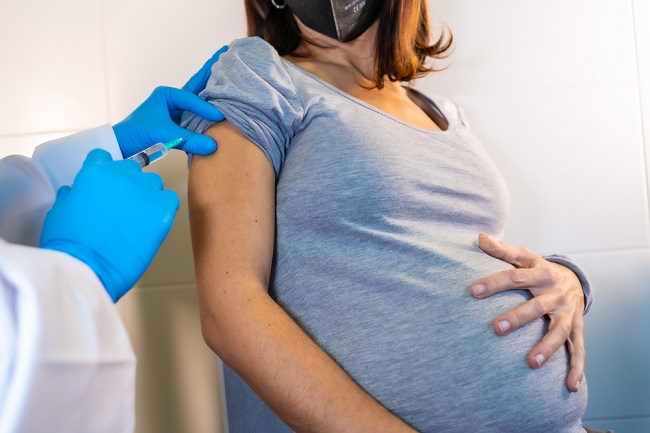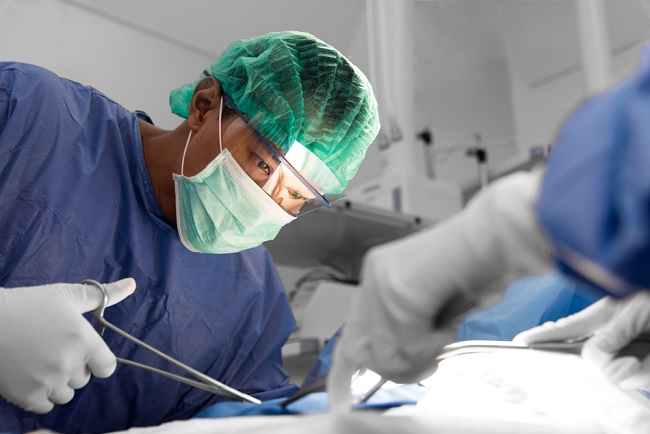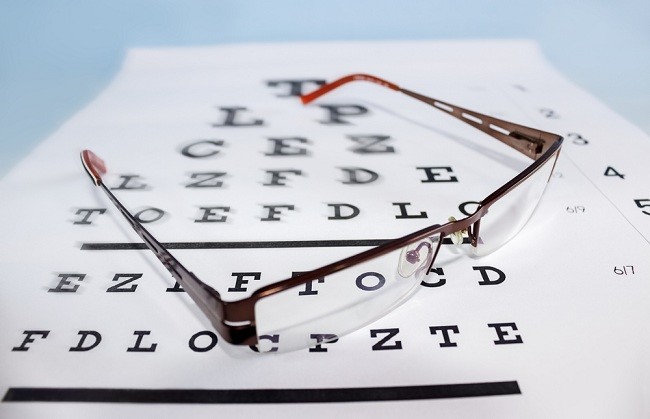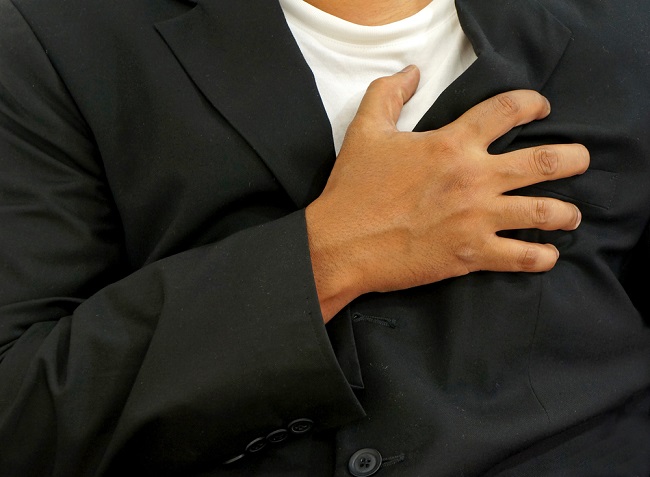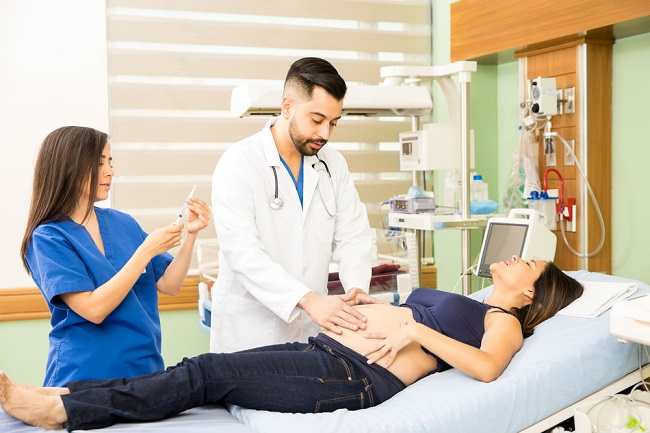Thoracic and cardiovascular surgeons are specialist doctors who treat cases of diseases in the organs in the chest cavity, especially the heart and lungs. The duties of this specialist start from making a diagnosis, giving medicines, to surgical treatment.
To become a thoracic and cardiovascular surgeon, one needs to have a general medical education background and complete specialist education in the field of thoracic, cardiac and vascular surgery for approximately 10 semesters or 5 years. After graduation, general practitioners will get a specialist degree as a thoracic and cardiovascular surgeon (Sp. BTKV).

Disorders in the chest and heart area have a high risk of complications ranging from infection, stroke, and even death. In treating patients, thoracic surgeons often work closely with doctors from other branches of specialization, such as heart and blood vessel doctors, pulmonary doctors, and internal medicine doctors.
Sub-specialty Thoracic and Cardiovascular Surgeon
The scope of work of thoracic and cardiovascular surgeons is quite broad, so it needs to be divided into several special divisions, namely:
General heart surgery
Handling various types of surgery for heart disorders in adults, generally due to coronary heart disease, heart failure, and heart valve disease.
chest surgery
Handling various types of surgery due to disorders of the chest area including the lungs, chest wall, esophagus, and diaphragm.
Heart surgery due to congenital disease
Treating a variety of congenital heart disease that has been present since birth in infants and children.
In addition, there are also thoracic and cardiovascular surgeons who specialize in organ transplantation in the chest cavity, such as heart and lung transplantation, or specialize in dealing with cases of injury to the chest cavity.
Diseases that a Thoracic and Cardiovascular Surgeon Can Treat
Thoracic and cardiovascular surgeons are competent to treat the following conditions:
- Heart problems, such as valvular heart disease, heart failure, heart disease, cardiac tamponade, and cardiomyopathy.
- Heart attack requiring heart surgery.
- Congenital heart disease.
- Heart rhythm abnormalities.
- Cardiogenic shock.
- Aortic aneurysm.
- Cancer in the chest area, such as lung cancer and esophageal cancer.
- Pneumothorax.
- Severe emphysema.
- A hiatus hernia.
- Swallowing disorders, such as achalasia.
In determining a patient's health problem or disease diagnosis, the thoracic surgeon will perform a series of examinations, namely physical and supporting examinations.
After tracing the history of the patient's symptoms or medical history, and conducting a physical examination, the doctor may then suggest a number of additional examinations, such as:
- Blood and urine tests.
- Chest X-ray, CT scan, MRI and angiography.
- ECG (electrocardiogram).
- Echocardiography
- Doppler ultrasound.
- Heart biopsy.
What a Thoracic and Cardiovascular Surgeon Can Do
Once the diagnosis is confirmed, the thoracic surgeon will determine the treatment method. The goal is to restore the function of the chest organs, including the heart and lungs, so that they can function properly again.
Before performing surgery, it is likely that the doctor will suggest non-surgical treatment steps first, such as lifestyle changes, or by administering drugs.
If necessary, then the thoracic surgeon will perform several surgical procedures or minimally invasive medical procedures to treat the patient's condition. Some of the procedures that can be performed by this thoracic surgeon are:
- Cardiovascular surgery, such as aortic surgery and Coronary Artery Bypass Graft (CABG) or surgery bypassheart.
- Pneumectomy, lobectomy or surgery wedge resection, which is a medical procedure for partial or complete removal of a lung.
- Insertion of a pacemaker (pacemaker) by surgical method.
- Heart valve surgery.
- Angioplasty.
- Organ transplantation, heart or lung.
- Cardiac catheterization.
- Removal of tumors, cysts, or cancer in the lungs
- Chest wall deformity surgery.
In addition to major surgery, thoracic surgeons can take advantage of various other advanced technologies to minimize incisions during surgery. This procedure is called a minimally invasive surgical procedure. The advantage of this technique is that there are fewer risks and faster recovery.
When Should You See a Thoracic and Cardiovascular Surgeon?
Disorders of the heart and lungs can be very diverse, so the symptoms vary greatly. Even so, in general, the following are signs and symptoms that indicate disorders of the heart and lungs:
- Pain or discomfort in the chest.
- Chest pain that radiates to the jaw, neck, shoulders, or back.
- Heart beat.
- Hard to breathe.
- A cold sweat.
- Easily tired after physical activity.
If you experience any of the above symptoms, especially for a long time or they come and go, you should immediately consult a doctor. Disorders of the organs in the chest can be fatal if not treated immediately.
Preparation Before Meeting the Thoracic and Cardiovascular Surgeon
A person usually goes to a thoracic and cardiovascular surgeon after receiving a referral from a general practitioner, cardiologist, pulmonary specialist, or internal medicine specialist.
Therefore, before coming to see a thoracic and cardiovascular surgeon, bring all the results of the examinations that have been done before.
To diagnose and treat a patient's illness, a thoracic surgeon needs to perform a complete medical examination and obtain detailed information. Therefore, do the following when consulting a thoracic surgeon:
- Tell all the symptoms and complaints that you feel.
- Describe a history of illness that you have suffered or a history of disease in the family.
- Tell your doctor any medications you are currently taking (including supplements and herbal remedies), and any allergies you have.
- Tell also your daily habits, including exercise habits and smoking (active or passive).
- Ask family or friends to accompany you, so that you are calmer.
It is recommended to find out in advance about the costs required to conduct a consultation and examination with a thoracic and cardiovascular surgeon, because the costs you will likely incur are not small.




